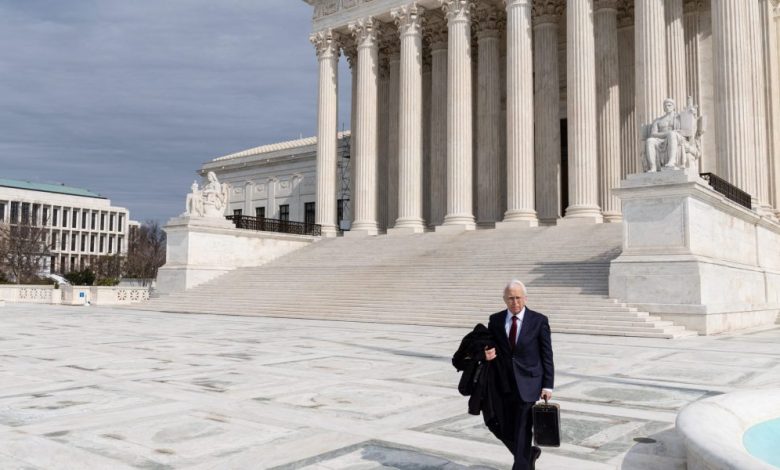The Supreme Court appears skeptical that social media giants have backed a terrorist attack in a key case that is testing the limits of online liability

The Supreme Court on Wednesday appeared skeptical of a lawsuit trying to blame social media companies for a terrorist attack on a Turkish nightclub that killed 39 people.
During the arguments in the Supreme Court, several judges stressed that there was no evidence linking Twitter, Facebook and Google directly to the 2017 attack on Istanbul’s Reina nightclub. The family of a man killed in the attack says the companies supported and supported the attack because they helped grow the Islamic State group, which claimed responsibility for the attack. A lower court allowed the lawsuit to continue.
What the court is doing with Wednesday’s case and a related case it heard a day earlier is important, especially because the internet companies have been shielded from liability and enabled them to grow into global giants.
If the court dismisses the lawsuit over the attack in Turkey, it could avoid a key ruling on corporate immunity. This outcome would maintain the current system but also leave open the possibility that the judges could revisit the matter in a later case.
Judge Amy Coney Barrett was among the members of the court who suggested the lawsuit against the companies lacks the kind of facts required under a federal counter-terrorism law to hold platforms accountable.
Barrett suggested that a lawsuit against a company like Twitter would need to include more, such as: B. Direct messages, comment threads or other evidence that the platform was used to coordinate activities for a terrorist attack, “not just the general recruitment or radicalization of people. ”
Judge Neil Gorsuch, who was attending remotely for the second day in a row due to illness, said he was struggling with the argument of a lawyer for the family of Nawras Alassaf, who was killed in the nightclub attack. Gorsuch said attorney Eric Schnapper is “struggling with how your complaint complies with the three requirements of the law” that the companies knowingly assisted an individual to commit a terrorist attack.
The judges seemed more willing to accept the arguments of a lawyer for Twitter, Facebook and Google, Seth Waxman. At one point during the two-and-a-half hour argument, Judge Sonia Sotomayor asked Waxman to help her outline what an expert opinion would look like if the court ruled for its clients. “Write it for me,” she said.
Judge Brett Kavanaugh summed up Waxman’s argument as follows: “If there is a reputable company that offers services on a generally available basis … it will not be held liable under this law even if it knows bad people are using its services for bad things.”
Judge Samuel Alito seemed to agree with the idea, suggesting that holding phone companies responsible for criminal activity by people using their phones would be preposterous. What if, he said, the phone company “knows that a certain person — has a criminal background and is likely to be involved in criminal activity and is using the phone to communicate with other members of that person’s gang. Is that an accomplice to the crimes they are committing?”
The law at issue in this case is the Justice Against Sponsors of Terrorism Act, which allows Americans injured by a terrorist attack abroad to sue in federal court for monetary damages.
A decision in the case – Twitter v. Taamneh, 21-1496 – Expected by the end of June before the court goes on its summer break.
Learn how to navigate and build trust in your organization with The Trust Factor, a weekly newsletter exploring what leaders need to succeed. Login here.



